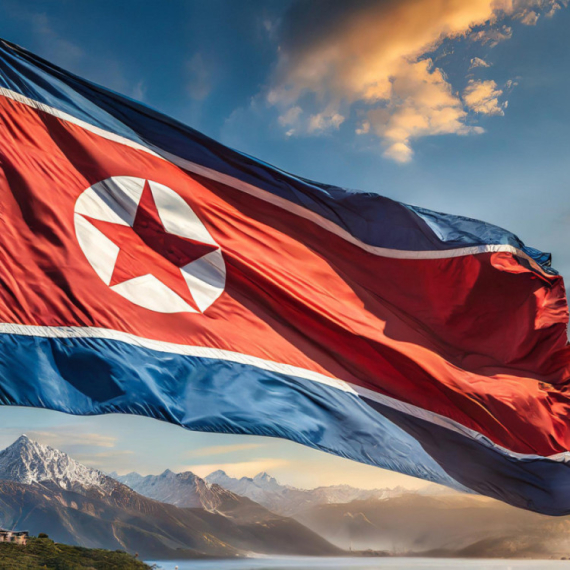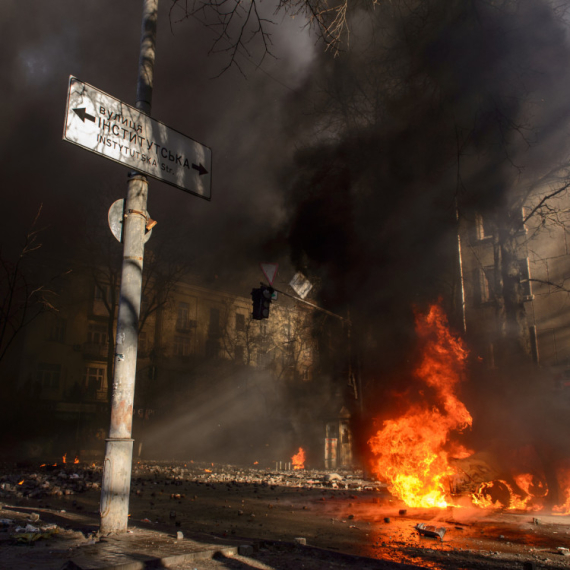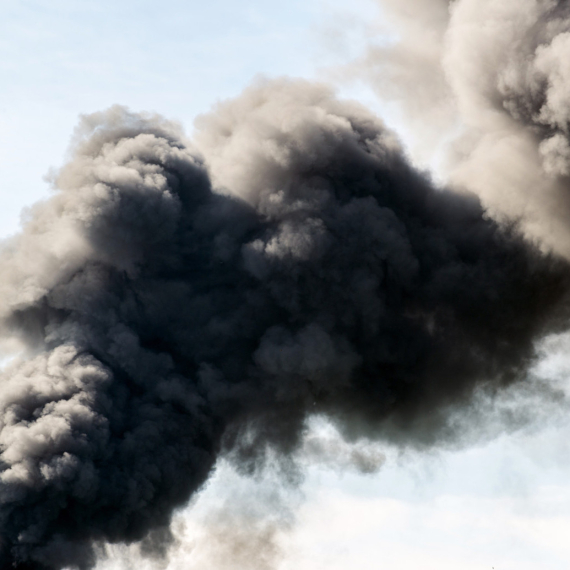Government responds to Ruecker standards report
UNMIK has not met any of the eight standards it was tasked with, the government says.
Tuesday, 15.01.2008.
11:08

UNMIK has not met any of the eight standards it was tasked with, the government says. The UN Mission to Kosovo, UNMIK, has, most significantly, failed to implement human rights standards, a statement issued by the Serbian government said yesterday. Government responds to Ruecker standards report UNMIK chief Joachim Ruecker is set to present his progress report on the implementation of standards in Kosovo from September 1 to November 30, 2007, to the UN Security Council on Wednesday in New York. On Sunday in Pristina, he said that Kosovo's standards now depended on the province's status. Another report on the Security Council agenda will be that of UN Secretary-General Ban Ki-moon. Serbia has published its response to both in a 27-page document, seen by Tanjug. Reacting to claims in the two reports that the transfer of power from UNMIK to the provisional Kosovo institutions was being carried out in keeping with Resolution 1244, the government pointed to a "unilateral imposition of the Martti Ahtisaari plan, aimed at supervised independence." The official Serbian response to Ruecker's report also points to what it sees as the shortcomings of UNMIK and the provisional Kosovo institutions in meeting standards relating to democratic institutions, the rule of law, freedom of movement, sustainable return, the economy, property rights, Serbian cultural heritage, dialogue and the Kosovo Defense Force. As far as meeting standards linked to democratic institutions in Kosovo is concerned, it is stated that in 2001, UNMIK and the Federal Republic of Yugoslavia adopted an Agreement on Cooperation in Kosovo on Joint Tasks and Objectives in Implementation of UN SC Resolution 1244. That document expressed a mutual conviction that Resolution 1244 could only be successfully implemented by joint activity of all parties concerned, and set out commitments relating to security and human rights, the protection of rights of Serbs and other ethnic minorities, and the return of displaced persons. The government feels that the document has never been fully implemented, and suggests that UNMIK and its decrees have breached the document which is still legally valid today. By breaching the agreement, Serbia's sovereignty has been directly violated by the transfer of powers from UNMIK to Kosovo’s provisional institutions which have taken place without any consultations with the competent bodies of the Republic of Serbia, says the government’s response. On the subject of the rule of law, the government points out that, despite UNMIK’s presence in Kosovo, Serb property is still being forcibly misappropriated by way of the judicial system. In municipalities that lack cadastral documentation - Pec, Klina, Decani, and Istok - ethnic Albanians are being inscribed in cadastral documents as the owners of property whose real owners are expelled Serbs. The response, drawn up by the Kosovo Ministry, stresses the fact that freedom of movement, as a basic human right, is denied to a significant part of the province’s population. The ministry reiterates that in the eight years since the arrival of the UNMIK mission in Kosovo, according to UNHCR data, 207,000 people have been internally displaced to Serbia and 18,000 to Montenegro. Within Kosovo itself, around 22,000 people have been relocated to some other place of residence in the province. After eight years, according to UNHCR data, 16,452 persons have returned to Kosovo, including 7231 Serbs, 4415 Ashkalies and Egyptians, 2038 Roma and 1425 Bosniaks. According to data from the Kosovo Ministry, only 3000 of the returnees have actually stayed on to live in the province. The number of displaced persons from Kosovo is constantly on the rise. The number has risen from 187,129 in 2000 to the current total of 207,000, which means that since UNMIK’s arrival almost 20,000 people have moved away from Kosovo. As to protection of Serbian cultural heritage in Kosovo, the government states that 156 churches and monasteries in the province have been demolished since 1999, 35 of them during the violence of March 17-18, 2004. The response added, since the arrival of UNMIK administration, circumstances in the fields of employment and social affairs in Kosovo have deteriorated significantly. Of 509 social, mixed and public companies, 507 have folded, leaving 76,535 without work. Joachim Ruecker (FoNet, archive)
Government responds to Ruecker standards report
UNMIK chief Joachim Ruecker is set to present his progress report on the implementation of standards in Kosovo from September 1 to November 30, 2007, to the UN Security Council on Wednesday in New York. On Sunday in Priština, he said that Kosovo's standards now depended on the province's status.Another report on the Security Council agenda will be that of UN Secretary-General Ban Ki-moon.
Serbia has published its response to both in a 27-page document, seen by Tanjug.
Reacting to claims in the two reports that the transfer of power from UNMIK to the provisional Kosovo institutions was being carried out in keeping with Resolution 1244, the government pointed to a "unilateral imposition of the Martti Ahtisaari plan, aimed at supervised independence."
The official Serbian response to Ruecker's report also points to what it sees as the shortcomings of UNMIK and the provisional Kosovo institutions in meeting standards relating to democratic institutions, the rule of law, freedom of movement, sustainable return, the economy, property rights, Serbian cultural heritage, dialogue and the Kosovo Defense Force.
As far as meeting standards linked to democratic institutions in Kosovo is concerned, it is stated that in 2001, UNMIK and the Federal Republic of Yugoslavia adopted an Agreement on Cooperation in Kosovo on Joint Tasks and Objectives in Implementation of UN SC Resolution 1244.
That document expressed a mutual conviction that Resolution 1244 could only be successfully implemented by joint activity of all parties concerned, and set out commitments relating to security and human rights, the protection of rights of Serbs and other ethnic minorities, and the return of displaced persons.
The government feels that the document has never been fully implemented, and suggests that UNMIK and its decrees have breached the document which is still legally valid today.
By breaching the agreement, Serbia's sovereignty has been directly violated by the transfer of powers from UNMIK to Kosovo’s provisional institutions which have taken place without any consultations with the competent bodies of the Republic of Serbia, says the government’s response.
On the subject of the rule of law, the government points out that, despite UNMIK’s presence in Kosovo, Serb property is still being forcibly misappropriated by way of the judicial system. In municipalities that lack cadastral documentation - Peć, Klina, Dečani, and Istok - ethnic Albanians are being inscribed in cadastral documents as the owners of property whose real owners are expelled Serbs.
The response, drawn up by the Kosovo Ministry, stresses the fact that freedom of movement, as a basic human right, is denied to a significant part of the province’s population.
The ministry reiterates that in the eight years since the arrival of the UNMIK mission in Kosovo, according to UNHCR data, 207,000 people have been internally displaced to Serbia and 18,000 to Montenegro. Within Kosovo itself, around 22,000 people have been relocated to some other place of residence in the province.
After eight years, according to UNHCR data, 16,452 persons have returned to Kosovo, including 7231 Serbs, 4415 Ashkalies and Egyptians, 2038 Roma and 1425 Bosniaks.
According to data from the Kosovo Ministry, only 3000 of the returnees have actually stayed on to live in the province. The number of displaced persons from Kosovo is constantly on the rise. The number has risen from 187,129 in 2000 to the current total of 207,000, which means that since UNMIK’s arrival almost 20,000 people have moved away from Kosovo.
As to protection of Serbian cultural heritage in Kosovo, the government states that 156 churches and monasteries in the province have been demolished since 1999, 35 of them during the violence of March 17-18, 2004.
The response added, since the arrival of UNMIK administration, circumstances in the fields of employment and social affairs in Kosovo have deteriorated significantly. Of 509 social, mixed and public companies, 507 have folded, leaving 76,535 without work.





















































Komentari 3
Pogledaj komentare